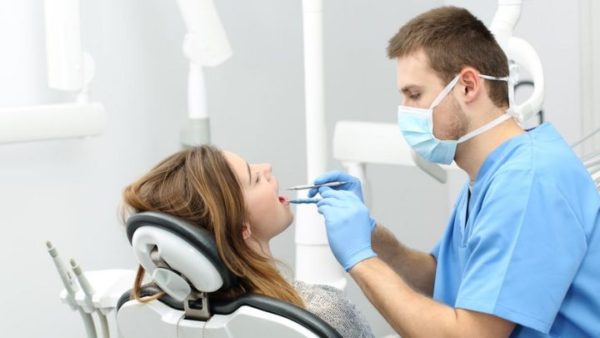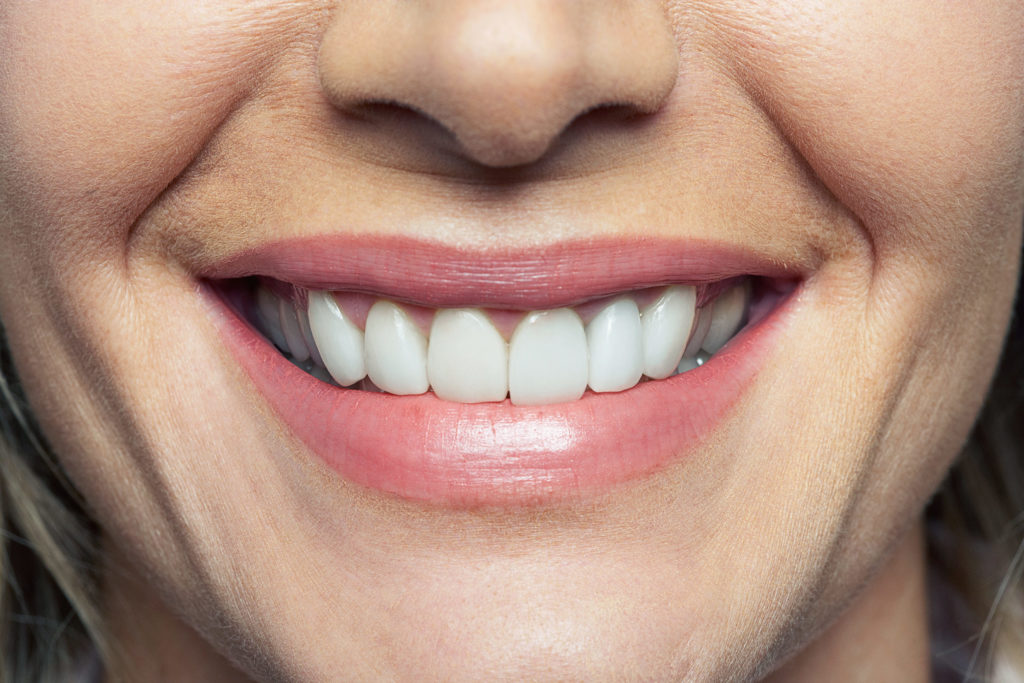Teeth Problems: Sensitive gums, white spots on the teeth, and dental pain are monitored very closely. Here are the dangerous symptoms not to be ignored.
1- Canker sores and other oral lesions that refuse to heal
Causes of canker sores: no one knows exactly what causes these painful small sores on the tongue or inside the cheeks.” caused by shocks or irritations related to food.”
Remedies for canker sores: “The good news: although they are annoying and painful, the canker sores heal themselves in 10 to 14 days,” you also do not need to suffer while awaiting healing. “You can try to coat them with ointments and protective gels sold without a prescription.” “But during these 10 to 14 days, avoid irritants such as spicy food, it will be less unpleasant. “
Attention: A canker that disappears on its own is not a cause for concern. On the other hand, if you regularly suffer from canker sores, or if you have one that persists for two weeks, it’s time to go to the dentist. “This a sign of a more serious problem”. A lesion that is slow to heal, a warning sign of oral cancer. Pains similar to those caused by a canker ulcer may also be a symptom of Crohn’s disease.
Once you regularly attend your dentist, no problem should arise unexpectedly. It is nevertheless useful, aware of the symptoms that would justify an exceptional visit to the dentist, especially if you happen to miss a little attendance. “When you brush your teeth, it’s the perfect time to examine your mouth to see if everything is normal.” Remember that when symptoms appear on your teeth and in your mouth, the problem that causes them has already advanced. This is why it is important to consult your dentist as soon as possible.

2- Changes in the gum (color, swelling and movement)
Among the diseases of the gum, there is gingivitis, the inflammation of the gums. There is also periodontitis, a more severe condition which, if left untreated, can lead to loss of teeth. These gum diseases are caused by plaque, an almost invisible film of bacteria that can form within 24 hours on a healthy tooth. Over time, this plaque hardens and becomes dental calculus. Tartar can accumulate under the gum, where it causes even more inflammation.
Contact the dentist if the following symptoms occur:
▪ The color of the gingiva changes, e.g., pink, becomes red or blue-red
▪ Gums swell and are spongy to the touch
▪ The gums retract, making the teeth appear bigger, you can even see a little bit of their root
▪ You notice pus, bad odor, or new spaces between teeth

3- Presence of white spots on teeth
Dental caries is essentially an infection of the tooth; The hard enamel begins to dissolve under the action of the acid produced by the bacteria. First symptoms: whiteheads. When the decay starts, primarily if it arises between the teeth, you probably do not notice. This is why periodic examinations with X-rays are so important. At this point, you can interrupt the process before a cavity formed that will require a filling. Thus, if you notice the new presence of white dots, consult your dentist as soon as possible.

4- Increased sensitivity to cold and heat
When decay passes through the enamel and penetrates the center of the tooth where the nerves and blood vessels are found, you notice new symptoms, such as new or increased dental sensitivity to hot and cold and certain foods. Make an appointment without delay with your dentist: the sooner you have a cavity treated, the better. Sensitivity to warmth and cold may also indicate less serious problems: a grinding of the teeth that you have not noticed, especially if it occurs at night, or a filling that needs to repair. It is always helpful to talk to your dentist.

5- A toothache and localized pain
A persistent toothache is usually a sign of a serious problem. Other related symptoms: a tooth sensitive to touch or pus formation near a tooth. Know that even if dental pain disappears after a day or two, you might still have a problem.
That’s discussed with the dentist: your organization has been successful in fighting the infection, but the problem remains; so, infection can re-emerge.

6- A Changed color or texture of the mouth
As you brush your teeth, take the time to examine the inside of your cheeks, as well as the top and bottom of your tongue. It is about seeing if something has appeared that was not there before. For example, if you see white or red patches that do not disappear, but on the contrary widen, or bumps that have formed where everything was smooth, show them to the dentist.

7- Gingival Recession
Causes of the gum recession: “The two main causes are abrasion caused by toothbrushing and chronic inflammation of the gums.” People who scratch their teeth with hard brushes can eventually peel off the gingival tissue from the teeth, exposing the roots. The chronic inflammation of the gums, as for it, results from the degradation of the bone that supports the dentition. As the bone crumbles, the gums that cover it collapse.
Remedies for Gingival Recession: If the culprit is brushing too strong teeth, we suggest using a soft bristle brush and changing your brushing method: instead of rubbing with continuous back and forth, For shorter movements, from top to bottom.
In the case of chronic inflammation of the gums, make an appointment at the dentist and have your teeth descale regularly to reduce inflammation and stop the loss of support bone. And do not forget to use floss! For those whose gums are already too damaged, grafting is an option. This procedure is performed by a dental surgeon who takes tissue from the palate to graft it onto the affected gums. The operation is done under local anesthesia, and the cure takes six weeks.
Warning: Untreated, a gingival recession can cause teeth, loosened because the surface of the exposed roots is more easily damaged. The teeth eventually become mobile, which can cause their permanent loss, either because they fall out of themselves, or because they move too much and need to remove.


